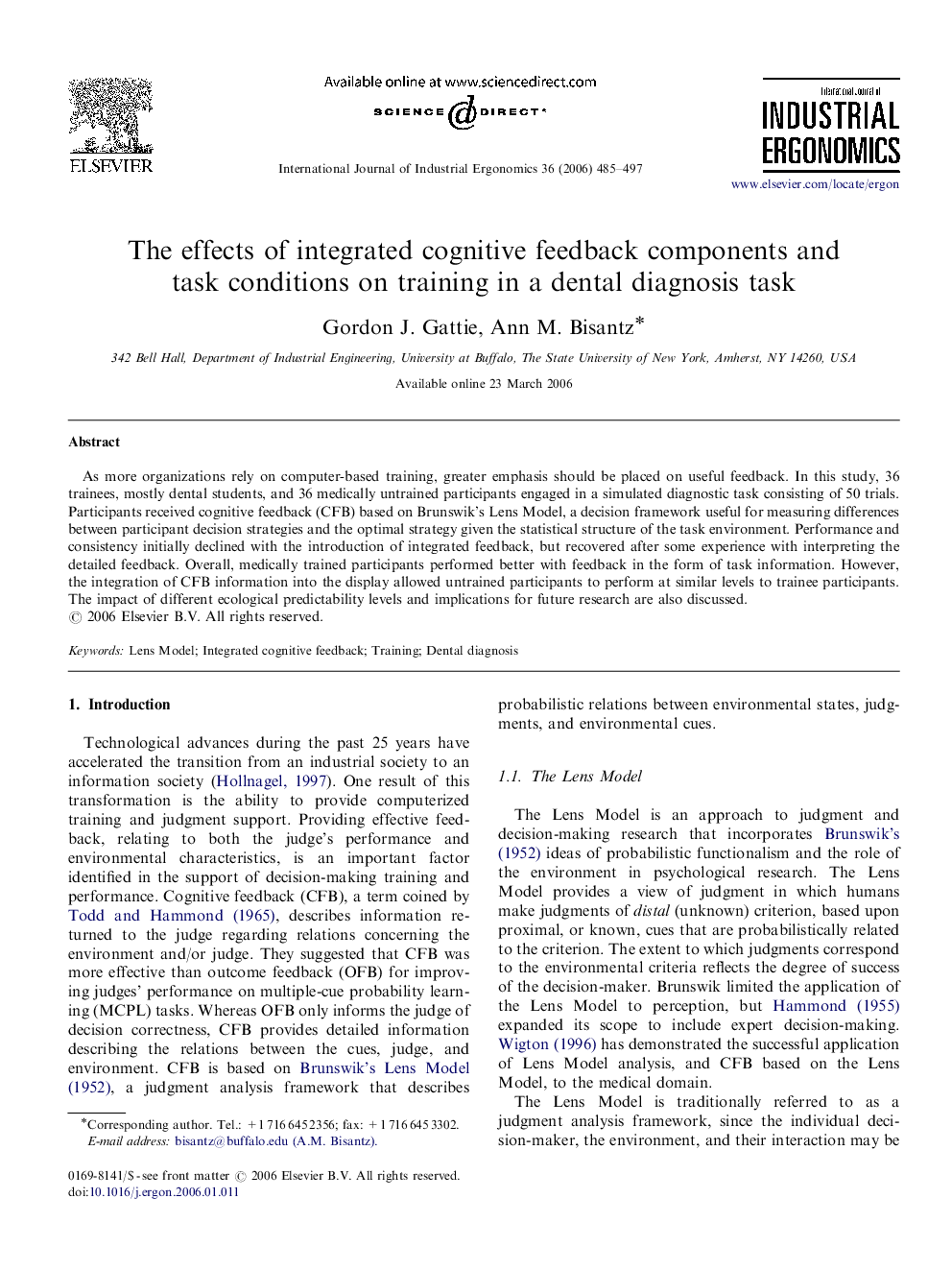| Article ID | Journal | Published Year | Pages | File Type |
|---|---|---|---|---|
| 1096837 | International Journal of Industrial Ergonomics | 2006 | 13 Pages |
Abstract
As more organizations rely on computer-based training, greater emphasis should be placed on useful feedback. In this study, 36 trainees, mostly dental students, and 36 medically untrained participants engaged in a simulated diagnostic task consisting of 50 trials. Participants received cognitive feedback (CFB) based on Brunswik's Lens Model, a decision framework useful for measuring differences between participant decision strategies and the optimal strategy given the statistical structure of the task environment. Performance and consistency initially declined with the introduction of integrated feedback, but recovered after some experience with interpreting the detailed feedback. Overall, medically trained participants performed better with feedback in the form of task information. However, the integration of CFB information into the display allowed untrained participants to perform at similar levels to trainee participants. The impact of different ecological predictability levels and implications for future research are also discussed.
Keywords
Related Topics
Physical Sciences and Engineering
Engineering
Industrial and Manufacturing Engineering
Authors
Gordon J. Gattie, Ann M. Bisantz,
